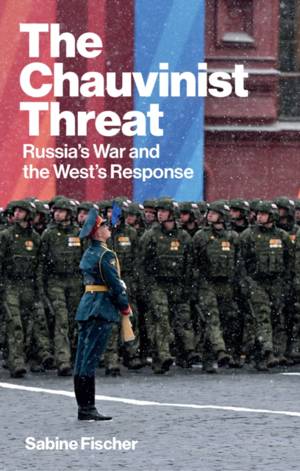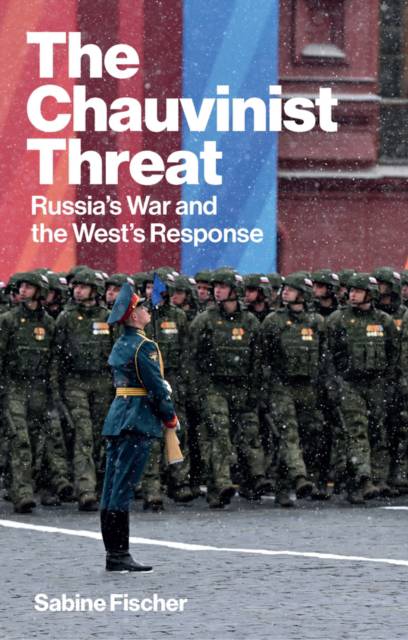
- Afhalen na 1 uur in een winkel met voorraad
- Gratis thuislevering in België vanaf € 30
- Ruim aanbod met 7 miljoen producten
- Afhalen na 1 uur in een winkel met voorraad
- Gratis thuislevering in België vanaf € 30
- Ruim aanbod met 7 miljoen producten
Zoeken
€ 27,95
+ 55 punten
Omschrijving
Many attempts have been made to explain Russia's fateful decision to invade Ukraine, but the argument of the distinguished political scientist Sabine Fischer is that we can fully understand Russia's foreign policy and its aggressive war of annihilation against Ukraine only by putting Russian chauvinism at the heart of our analysis. Fischer argues that Putin's regime has long been driven by a mixture of aggressive nationalism, sexism and autocracy: taken together, these three elements constitute the chauvinist threat that stems from Moscow and that led to Russia's invasion of Ukraine.
An internationally renowned expert on Russia and Eastern Europe with decades of experience in EU-Russia relations, Fischer enriches her analysis with observations and conversations conducted in Russia and Eastern Europe over the past thirty years, including conversations with senior Russian politicians and colleagues in the run-up to and aftermath of the invasion. She also shows that the chauvinist threat stemming from Moscow is a threat not just to Ukraine but also to liberal democracies and to the liberal, rules-based world order, and she outlines steps that liberal democracies should take to counter the chauvinist threat.
By bringing into sharp focus the sexism of Putin's regime and its explosive blending together with nationalism and autocracy, this book makes an important contribution to understanding both the brutal war in Ukraine and the serious threats faced by all liberal democracies today.
An internationally renowned expert on Russia and Eastern Europe with decades of experience in EU-Russia relations, Fischer enriches her analysis with observations and conversations conducted in Russia and Eastern Europe over the past thirty years, including conversations with senior Russian politicians and colleagues in the run-up to and aftermath of the invasion. She also shows that the chauvinist threat stemming from Moscow is a threat not just to Ukraine but also to liberal democracies and to the liberal, rules-based world order, and she outlines steps that liberal democracies should take to counter the chauvinist threat.
By bringing into sharp focus the sexism of Putin's regime and its explosive blending together with nationalism and autocracy, this book makes an important contribution to understanding both the brutal war in Ukraine and the serious threats faced by all liberal democracies today.
Specificaties
Betrokkenen
- Auteur(s):
- Vertaler(s):
- Uitgeverij:
Inhoud
- Aantal bladzijden:
- 220
- Taal:
- Engels
Eigenschappen
- Productcode (EAN):
- 9781509567713
- Verschijningsdatum:
- 7/01/2026
- Uitvoering:
- Hardcover
- Formaat:
- Genaaid
- Afmetingen:
- 225 mm x 147 mm
- Gewicht:
- 400 g

Alleen bij Standaard Boekhandel
+ 55 punten op je klantenkaart van Standaard Boekhandel
Beoordelingen
We publiceren alleen reviews die voldoen aan de voorwaarden voor reviews. Bekijk onze voorwaarden voor reviews.







